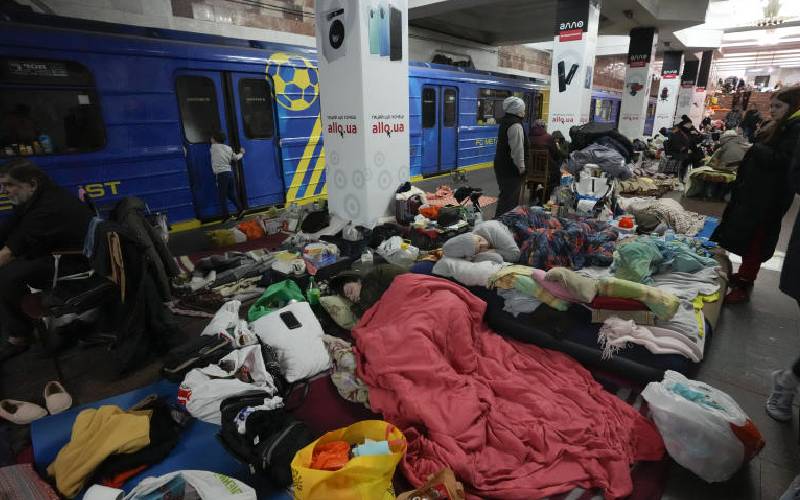×
The Standard e-Paper
Kenya’s Boldest Voice

People with their belongings hide in a city subway that they have used as a bomb shelter for over three weeks in Kharkiv, Ukraine, March 2022. [AP Photo/Efrem Lukatsky]
Reading some of the recent comments in the Kenyan press and on social networks, I am struck by the fact that with the ongoing conflict in Ukraine, there is a risk of slowly getting used to and less outraged by what is a massive, brutal, bloodthirsty military attack by Russia on a sovereign and neighbouring State.







